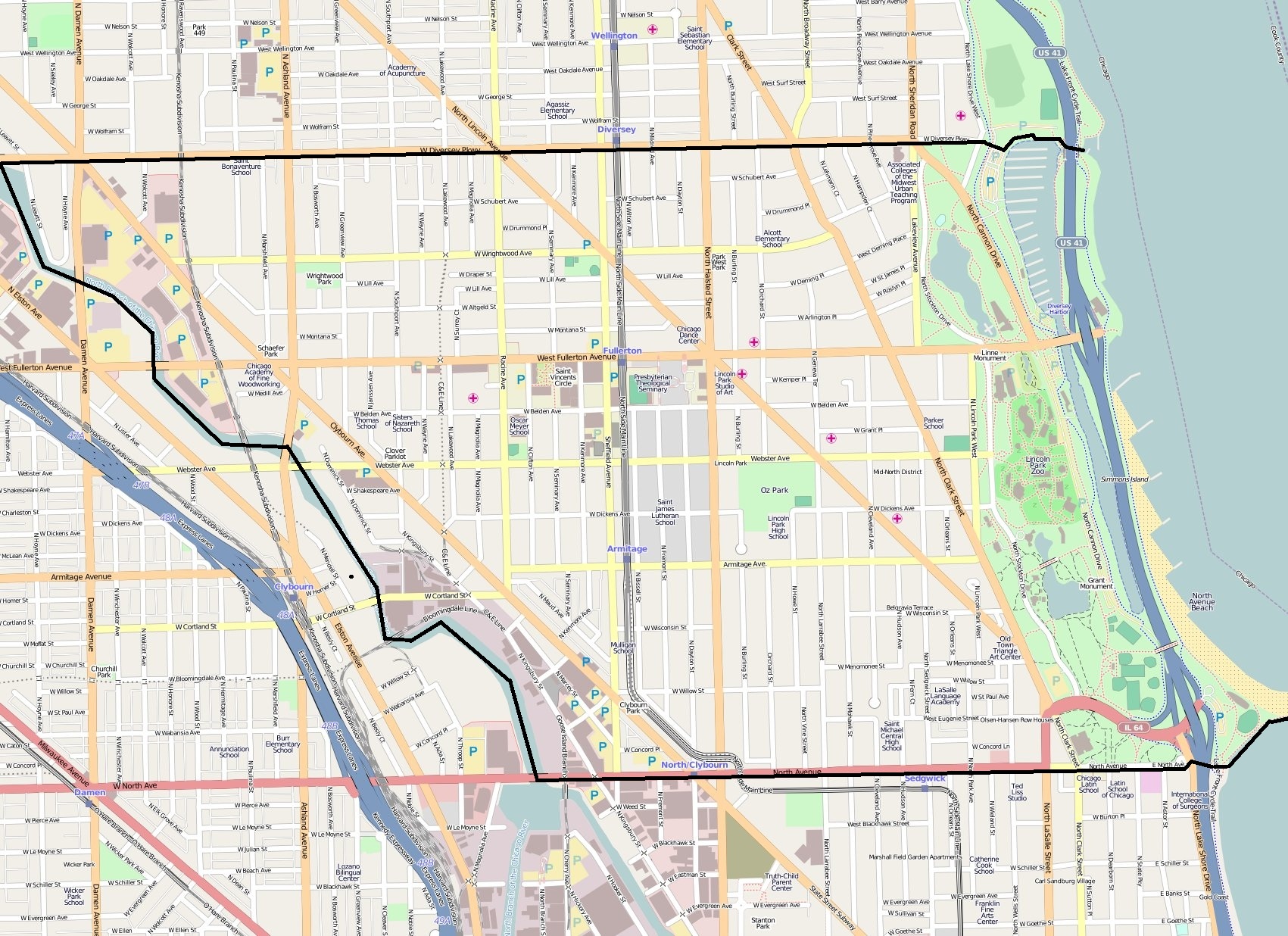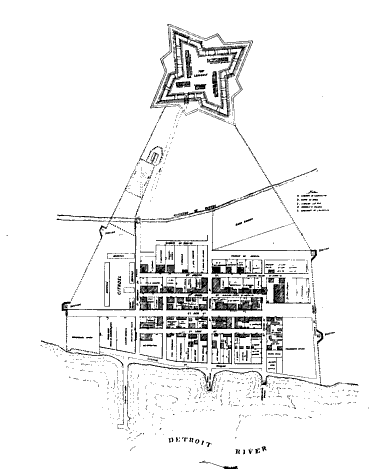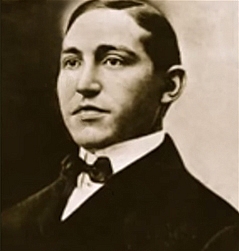|
St. Valentine’s Day Massacre
The Saint Valentine's Day Massacre was the murder of seven members and associates of Chicago's North Side Gang that occurred on Saint Valentine's Day 1929. The men were gathered at a Lincoln Park, Chicago garage on the morning of February 14, 1929. They were lined up against a wall and shot by four unknown assailants, two dressed as police officers. The murders resulted from the competition for control of organized crime in the city during Prohibition between the largely Irish North Siders, headed by George "Bugs" Moran, and their largely Italian Chicago Outfit rivals led by Al Capone. The perpetrators have never been conclusively identified, but former members of the Egan's Rats gang working for Capone are suspected of involvement; others have said that members of the Chicago Police Department who allegedly wanted revenge for the killing of a police officer's son played a part. The massacre At 10:30 a.m. on Saint Valentine's Day, Thursday, February 14, 1929, sev ... [...More Info...] [...Related Items...] OR: [Wikipedia] [Google] [Baidu] |
Lincoln Park, Chicago
Lincoln Park is a designated community area on the North Side of Chicago, Illinois. Lying to the west of Lincoln Park, Chicago's largest park, it is one of the most affluent neighborhoods in Chicago. History In 1824, the United States Army built a small post near today's Clybourn Avenue and Armitage Avenue (formerly Centre Street). Native American settlements existed along Green Bay Trail, now called Clark Street (named after George Rogers Clark), at the current intersection of Halsted Street and Fullerton Avenue. Before Green Bay Trail became Clark Street, it stretched as far as Green Bay, Wisconsin, including Sheridan Road, and was part of what still is Green Bay Road in Milwaukee County, Wisconsin. In 1836, land from North to Fullerton and from the lake to Halsted was relatively inexpensive, costing $150 per acre ($370 ha) (1836 prices, not adjusted for inflation). Because the area was considered remote, a smallpox hospital and the city cemetery were located in Linc ... [...More Info...] [...Related Items...] OR: [Wikipedia] [Google] [Baidu] |
Peter Gusenberg
Peter Gusenberg a.k.a. "''Goosey''" (September 22, 1888 – February 14, 1929) and his brother Frank were German-American contract killers and members of Chicago's North Side Gang, the main rival to the Chicago Outfit. Peter Gusenberg participated in an infamous attack on Al Capone during a vicious gang war. Early life Peter Gusenberg Jr. was born at the Alexian Brothers Medical Center in Chicago, Illinois to Peter Sr. and his wife. He was the firstborn of three sons and the namesake of his father Peter Gusenberg (Gusenberger) Sr. who was a first generation Roman Catholic emigrant from Gusenburg, a municipality in the Trier-Saarburg district, in Rhineland-Palatinate, Germany and his wife. His parents moved into a home at 434 Roscoe Street in Lakeview, Chicago where Peter lived with his brothers Frank (October 11, 1893 Chicago, Illinois) along with their youngest brother Henry who later moved to 5507 Bernice Avenue, Portage Park, Chicago. In 1901, when Peter Jr. was twelve ye ... [...More Info...] [...Related Items...] OR: [Wikipedia] [Google] [Baidu] |
Detroit
Detroit ( , ; , ) is the largest city in the U.S. state of Michigan. It is also the largest U.S. city on the United States–Canada border, and the seat of government of Wayne County. The City of Detroit had a population of 639,111 at the 2020 census, making it the 27th-most populous city in the United States. The metropolitan area, known as Metro Detroit, is home to 4.3 million people, making it the second-largest in the Midwest after the Chicago metropolitan area, and the 14th-largest in the United States. Regarded as a major cultural center, Detroit is known for its contributions to music, art, architecture and design, in addition to its historical automotive background. ''Time'' named Detroit as one of the fifty World's Greatest Places of 2022 to explore. Detroit is a major port on the Detroit River, one of the four major straits that connect the Great Lakes system to the Saint Lawrence Seaway. The City of Detroit anchors the second-largest regional economy in t ... [...More Info...] [...Related Items...] OR: [Wikipedia] [Google] [Baidu] |
The Purple Gang
The Purple Gang, also known as the Sugar House Gang, was a criminal mob of bootleggers and hijackers comprised predominantly of Jewish gangsters. They operated in Detroit, Michigan, during the 1920s of the Prohibition era and came to be Detroit's dominant criminal gang. Excessive violence and infighting caused the gang to destroy itself in the 1930s. History The Michigan legislature prohibited the sale of liquor in 1917, three years before national Prohibition was established by a constitutional amendment. Along with temperance supporters, industrialist Henry Ford owned the River Rouge plant and desired a sober workforce, so he backed the Damon Act, a state law that, along with the Wiley Act, prohibited virtually all possession, manufacture, or sale of alcohol starting in 1918. Detroit is close to Ohio, so bootleggers and others would import liquor from Toledo where it was still legal. They also smuggled liquor in from Canada. Judges took a lenient view of offenders. The ... [...More Info...] [...Related Items...] OR: [Wikipedia] [Google] [Baidu] |
Italian-American Mafia
The American Mafia, commonly referred to in North America as the Italian American Mafia, the Mafia, or the Mob, is a highly organized Italian American criminal society and organized crime group. The organization is often referred to by its members as Cosa Nostra (, "our thing" or "this thing of ours") and by the American government as La Cosa Nostra (LCN). The organization's name is derived from the original ''Mafia'' or ''Cosa nostra'', the Sicilian Mafia, with "American Mafia" originally referring simply to Mafia (or ''Cosa nostra'') groups from Sicily operating in the United States, as the organization initially emerged as an offshoot of the Sicilian Mafia (known also as ''Cosa nostra'' by its members) formed by Italian immigrants in the United States. However, the organization gradually evolved into a separate entity partially independent of the original Mafia in Sicily, and it eventually encompassed or absorbed other Italian immigrant and Italian-American gangsters and Ita ... [...More Info...] [...Related Items...] OR: [Wikipedia] [Google] [Baidu] |
Unione Siciliana
The Italian-American National Union (formerly known as Unione Siciliana) was a Sicilian-American organization, which controlled much of the Italian vote within the United States during the early twentieth century. It was based in Chicago, Illinois. It was a major source of conflict during Prohibition, as underworld figures fought to control the highly influential organization through a series of puppet presidents largely controlled by the Chicago Outfit. During the 1970s, the organization was probably merged into the Italian Sons and Daughters of America. However, similar groups still exist and have much influence in Italian American communities throughout the United States. History The organization was founded in 1895 by Sicilian immigrants in Chicago. The name was changed to the Italian-American National Union in 1925 in order to attract Italian-Americans from other regions. The Union was paying out sick benefits and death benefits and had deposited $100,000 with the Illinois De ... [...More Info...] [...Related Items...] OR: [Wikipedia] [Google] [Baidu] |
Antonio Lombardo
Antonio "Tony the Scourge" Lombardo (; November 23, 1891 – September 7, 1928) was an Italian-born American mobster. He was ''consigliere'' to Al Capone, and later the President of the Unione Siciliana. Biography Born in the town of Galati Mamertino in Sicily on November 23, 1891, Antonio Lombardo immigrated to the United States in the early 20th century where he became a successful wholesale grocery business owner in Chicago, Illinois. In September 1917 he was involved in the killing of Cleveland Police Officer Elmer Glaefke A long time Mafia associate, Lombardo became Al Capone's advisor after John Torrio retired in 1925. Lombardo tried unsuccessfully to negotiate peace between the Chicago Outfit and the North Side Gang during the four-year gang war, suggesting that Capone surrender supposed Dean O'Banion assassins Albert Anselmi and John Scalise, which Capone refused. Lombardo, with the help of Capone, later became President of the Unione Siciliana in November 1925, att ... [...More Info...] [...Related Items...] OR: [Wikipedia] [Google] [Baidu] |
Pasqualino Lolordo
Pasquale Lolordo (1887 – January 8, 1929), also known as Pasqualino or "Patsy", was an Italian-born American Mafia boss from Ribera, Sicily, and head of the Chicago chapter of the Unione Siciliana, a "front" organization for the Mafia. Lolordo was considered one of the most powerful mafia bosses during the late 1920s. Lolordo succeeded Antonio "The Scourge" Lombardo, an associate of Al Capone, as chapter president. Lombardo had been killed only months before after he refused to turn the presidency over to Mafia mobster Joe Aiello. Lolordo was supported by the national Unione Siciliana president, Frankie Yale, in New York. Some speculate that Lolordo wanted to reform the organization like another former chapter leader, Mike Merlo. Lolordo did not have sufficient time to do anything. On January 8, 1929, he was shot and killed by unidentified gunmen in his home. The killing was arranged by George "Bugs" Moran, a leader of the North Side Gang and a bitter rival of Capone, as a ... [...More Info...] [...Related Items...] OR: [Wikipedia] [Google] [Baidu] |
Jack McGurn
Jack "Machine Gun Jack" McGurn (born Vincenzo Antonio Gibaldi; ; July 2, 1902 – February 15, 1936) was a Sicilian-American boxer, mobster, and eventually a made man and caporegime in Al Capone's Chicago Outfit. Early life McGurn was born in July 1902 in Licata, Sicily, the eldest son of Tommaso and Giusepina Gibaldi (née Verderame). Four years later, he and his mother emigrated to join his father in the United States of America, arriving at Ellis Island on November 24, 1906. McGurn grew up in Red Hook, Brooklyn where he went to Public School 46 on Union Street between Henry and Hicks streets, according to underworld historian Bill Balsamo, author of Crime Incorporated. McGurn moved to Chicago when he was 14 where he later took up a career in boxing as a teenager and changed his name to "Battling" Jack McGurn because boxers with Irish names got the better bookings. After Tommaso's death while McGurn was still young, his mother remarried to grocer Angelo DeMory, who was late ... [...More Info...] [...Related Items...] OR: [Wikipedia] [Google] [Baidu] |
Dean O'Banion
Charles Dean O'Banion (July 8, 1892 – November 10, 1924) was an American mobster who was the main rival of Johnny Torrio and Al Capone during the brutal Chicago bootlegging wars of the 1920s. The newspapers of his day made him better known as Dion O'Banion, although he never went by that first name. He led the North Side Gang until 1924, when he was shot and killed, reportedly by Frankie Yale, John Scalise and Albert Anselmi. Early life O'Banion was born to Irish Catholic parents in the small town of Maroa in Central Illinois. The O'Banion family moved to Aurora, Illinois, when Dean was a small child. In 1901, after his mother's death, he moved to Chicago with his father and older brother (a sister, Ruth, remained in Maroa). The family settled in Kilgubbin, otherwise known as, "Little Hell," a heavily Irish area on the North Side of Chicago that was notorious citywide for its crime. As a youngster, "Deanie," as he became known, sang in the church choir at Chicago's Holy ... [...More Info...] [...Related Items...] OR: [Wikipedia] [Google] [Baidu] |
Vincent Drucci
Vincent Drucci (born Ludovico D'Ambrosio; January 1, 1898 – April 4, 1927), also known as "The Schemer", was an American mobster during Chicago's Prohibition era who was a member of the North Side Gang, Al Capone's best known rivals. A friend of Dean O'Banion, Drucci succeeded him by becoming co-leader. He is the only American organized crime boss to have been killed by a policeman. Early years Drucci was born Ludovico D'Ambrosio in Chicago, Illinois, on January 1, 1898, to Italian parents from northern Italy. After serving in the U.S. Navy, he returned to Chicago and started committing small-time crimes such as breaking open pay telephone coin boxes. He joined Dean O'Banion's North Side Gang, which had taken over the formerly legal breweries and distilleries in that part of the city giving them massive profits from illicit production of alcohol, in addition to shakedowns and other rackets. Often described as mainly Irish-American, after O'Banion's death the North Side Gang wa ... [...More Info...] [...Related Items...] OR: [Wikipedia] [Google] [Baidu] |
Hymie Weiss
Earl J. "Hymie" Weiss (born Henryk Wojciechowski; January 25, 1898 – October 11, 1926), was a Polish-American mob boss who became a leader of the Prohibition-era North Side Gang and a bitter rival of Al Capone. He was known as "the only man Al Capone feared". Early years Henryk Wojciechowski was born in present-day Sieradz, Congress Poland, to Walenty S. Wojciechowski and Maria Bruszkiewicz. His parents emigrated to the United States in 1901 when Henryk was 3 years old and, upon their arrival in the new country, took the names of William and Mary Weiss. They settled in Buffalo, New York and later moved to an Irish district in the north of Chicago. He had five siblings, Bernard (Bruno), Frederick, Violet and Joseph, one of the two who died during infancy.Hymie Weiss My Al Capone Museum As a teenager, Weiss became a petty criminal. After ... [...More Info...] [...Related Items...] OR: [Wikipedia] [Google] [Baidu] |


_and_Peter_(1888–1939)_Gusenberg_at_Irving_Park_Cemetery.jpg)


_at_Mount_Carmel_Cemetery%2C_Hillside%2C_IL_1.jpg)

_at_Mount_Carmel_Cemetery%2C_Hillside%2C_IL_1.jpg)
_at_Mount_Carmel_Cemetery%2C_Hillside%2C_IL_1.jpg)
_at_Mount_Carmel_Cemetery%2C_Hillside%2C_IL_1.jpg)